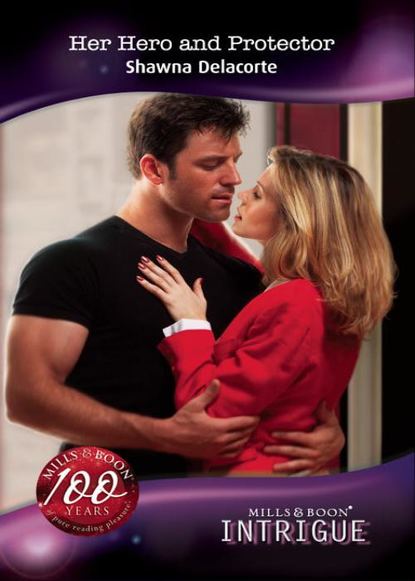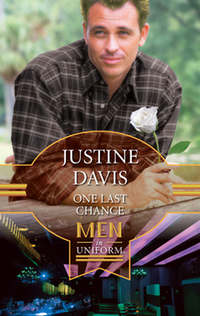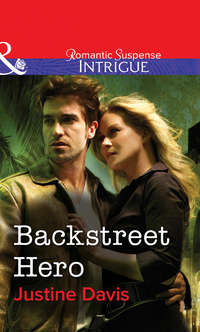
Полная версия
Colton Destiny
Something about the simple tableau tightened her throat. She felt a yearning that startled her with its power, especially since she couldn’t even put a name to what she was yearning for.
She was happy enough in Cleveland. Her work was rewarding, if a bit routine, something that would surprise most whose idea of the FBI came from film or television.
Caleb wouldn’t have those ideas, she thought suddenly. Because he wouldn’t have been influenced by either of those things. Most times when she thought of life without the technology everyone relied on, it was with a wondering shake of her head. When people learned she had grown up in Amish country, they were often full of questions, mostly about how some people could stand to live like that. Her standard answer had always been that you don’t miss what you’ve never had.
But now she wasn’t so sure they weren’t better off without the pervasive hammering of popular culture and the twenty-four-hour news cycle. The idea of simply unplugging held a lot more appeal than it once had.
She gave herself a mental shake. She’d expected to feel at home here in this countryside she’d grown up in, but she hadn’t expected this wave of … what was it, homesickness? How could you feel homesick when you were, essentially, at home?
“Because you know you’re not staying,” she muttered as she took that last step onto the porch. It was as solidly built as the rest of the house, the boards beneath her feet feeling even and level. In size and layout, it appeared to match most of the houses here in Paradise Ridge, yet it was different, because instead of the traditional and ubiquitous white paint, it was finished with a clear coat of some kind—
The front door swung open. Caleb Troyer stood there, limned from behind in golden light. She was struck again by how tall he was. Struck by how lean he was. Struck by the strength of his jaw, the structure of his face.
Struck dumb, apparently, she thought when she realized he’d been looking at her in polite inquiry for several seconds.
“Miss Colton?” he finally said.
She said the first thing that popped into her head. “Your house isn’t white.”
His brows rose. “You came here to tell me this?”
She felt beyond foolish. She’d interviewed terrorists, serial killers, kidnappers, yet she couldn’t seem to get her mind and her mouth in sync around this man.
“I was just wondering why.”
“My father built this house. It’s what he did, build houses. Not just here, but for outsiders, as well. He kept this house this way, with no paint to disguise any flaws, as an advertisement.”
“That’s allowed?”
His mouth quirked, and she wondered if she were going to get some kind of lecture about asking impertinent or intrusive questions that had nothing to do with why she was here. She told herself that was part of the job, too, to build a rapport of sorts, but she wasn’t convincing herself.
“Many things are allowed,” he said, in a tone she guessed he probably used to explain things to his children, “if they can be shown to have a good purpose and not to be harmful to the community.”
“It’s … beautiful,” she said, somehow stung by that tone, although she thought she hid it well enough.
“I believe what sold the bishop was my father’s argument that showing the natural state of the wood, which is God’s design, could hardly be a bad thing.”
Emma blinked. His tone had changed completely, was now warmer, as if sharing a confidence. As, perhaps, he was. It seemed to her a very clever argument.
“Your father was a smart man.”
“He was.” She thought he smothered a sigh. “Smarter than I, certainly.”
“Are you going to invite her inside out of the cold, Father?”
It was Katie who’d spoken. The girl had moved so quietly even her father seemed startled when she spoke practically from beside his elbow. Emma, facing the room, had seen the movement but said nothing. Watching the natural interaction of a family involved in a crisis like this one was often very illuminating.
To her amazement, Caleb flushed slightly. “Of course,” he said, his voice gruff but not angry. Embarrassed, perhaps, at being reminded of his manners by his eleven-year-old daughter? “Come in,” he said, backing up and holding the door open.
She stepped inside. The room was as warm and cozy as it had looked through the window. As with all Amish homes, it was simply furnished. Yet each wood chair, the storage pieces along the walls and the table the girls had been sitting at bore the signs of that fine craftsmanship she’d seen in his shopwindow earlier. The lines were simple, unadorned in the Amish way, but the quality shone through. She guessed those chairs would be as solid in twenty years as they were now.
Ruthie abandoned any pretense at concentrating on what appeared to be schoolwork on the table before her, got up and approached them.
“Aren’t you supposed to be looking for Aunt Hannah?”
“Ruth,” Caleb said sternly, “don’t be rude.”
Emma couldn’t help smiling. “I don’t blame her for asking. But let me ask you something, Ruthie. If I told you I’d lost something outside and asked you to help me find it, what would you do?”
“I would help you. That’s what people do.”
Emma felt a small jab. If that were always true, life would be so much simpler. But then, that’s what the Amish were all about, wasn’t it—a simpler life?
“So, we go outside, and then what?”
“We would look,” the girl said, brows furrowing. Emma had the distinct impression she was thinking something about how silly this grown-up was.
“Where?”
“Where you were when you lost it,” the girl said with an air of strained patience.
“And how would you know where that was?”
Ruthie sighed, as if her patience had run out. “I’d ask you.”
Emma sensed she was a very bright girl, and so she simply waited, saying nothing more. For an instant her gaze flicked to Caleb, who had subsided into silence and was watching intently.
It didn’t take the girl long. Her furrowed brow was cleared by dawning realization.
“You mean that’s what you’re doing? Finding out where to look?”
“Exactly.”
“Oh.”
The child appeared satisfied, and Katie smiled at her. Caleb said nothing to her, but directed Ruthie to finish her schoolwork and spoke to Katie about putting away clothing.
“Mrs. Stoltzfus’s daughter was kind enough to wash them. You should honor that by taking proper care.”
Something flashed in the girl’s blue eyes, but she only said “Yes, Father” and disappeared through a doorway at the back of the room.
The girl knew, Emma realized.
If there was one thing Emma had learned today in her preliminary interviews with a few of the residents of the village and the surrounding farms, it was that Caleb Troyer was on the figurative radar of every unmarried woman around.
It might well be that it was that sense of intense community that Amish life fostered brought on much of the generous help he was given, help with the girls and with the chores commonly relegated to the female domain, but it hadn’t taken Emma long to figure out that many of those women also had an eye on stepping into his late wife’s shoes.
Not that she didn’t understand perfectly. She was, after all, the one who had gone all wobbly the moment she’d spotted him standing in the back of his shop.
But Caleb seemed oblivious to their interest, much to their sorrow.
And to her own relief.
Конец ознакомительного фрагмента.
Текст предоставлен ООО «ЛитРес».
Прочитайте эту книгу целиком, купив полную легальную версию на ЛитРес.
Безопасно оплатить книгу можно банковской картой Visa, MasterCard, Maestro, со счета мобильного телефона, с платежного терминала, в салоне МТС или Связной, через PayPal, WebMoney, Яндекс.Деньги, QIWI Кошелек, бонусными картами или другим удобным Вам способом.












